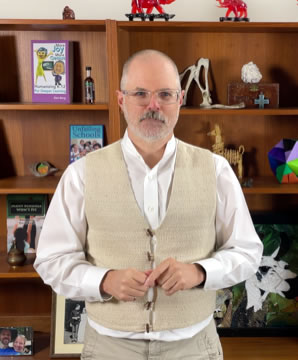Understanding the Purpose of Schools:
A Holistic Perspective
- Home
- Education Philosophy
- Purpose of Schools
The purpose of schools has become one of the most contentious topics in modern education debates.
How we understand this fundamental question shapes our responses to nearly every controversy in education today, from curriculum decisions to teaching methods to the role of social-emotional learning.

The Conservative View of School Purpose
When Florida rejected more than 40% of math textbooks submitted for review in 2022, it sparked renewed debate about what schools should actually accomplish.
Education conservative Robert Pondiscio weighed in, cautioning against portraying social and emotional learning (SEL) as critical race theory in disguise.
His perspective offers insight into mainstream thinking about the purpose of schools.
Pondiscio raises legitimate concerns about the nature of schools, learning, and education. He questions whether monitoring, evaluating, and seeking to shape a child's attitudes, values, and beliefs falls within the appropriate business of a school.
While few parents want teachers to be indifferent to their child's overall well-being, in 2021 he asked: at what point does reasonable concern for students' emotional health become too personal, too intrusive, and too sensitive to be a legitimate function of public education?
The mainstream view that Pondiscio represents sees the purpose of schools as prioritizing academic knowledge and skills organized by subject-matter disciplines.
This approach is teacher-centric, favoring transmission of established knowledge while promoting character formation and basic critical thinking skills to preserve Western civilization.

A Holistic Alternative to Mainstream School Purpose
While respecting the underlying concerns of educational conservatives, a holistic perspective suggests that children need social structures even more than academic structures.
The most effective schools provide clear and compelling social structures while making academic structures available as choices for children.
Psychological reality makes social structure far more educationally powerful than academic structures alone.
When social structures fail to support primary human needs, educational efforts become generally ineffective regardless of what academic structure is implemented.
From a holistic perspective, the central purpose of schools should be ensuring that society has educated citizens who can actively participate in governing.
An educated person perceives accurately, thinks clearly, and acts effectively on self-selected goals and aspirations.
They continuously seek to improve their grasp on reality through deeper learning.
Deeper learning only becomes possible when students and teachers are genuinely engaged with their activities.
Unfortunately, the current global school system consistently produces disengagement among both students and teachers.
Too often, shallow learning results because of how educational situations are socially structured.
The Problem of Fauxchievement
The current system of schooling produces what might be called "fauxchievement"—going through the motions to get rewards without actually learning the lessons taught.
Even if we accept academic instruction as the primary purpose of schools, the current system fails to deliver.
When we understand the purpose of schools as enabling citizens to grasp the reality of their lives, the failure becomes even more apparent.
Decades of study and reflection suggest that the mainstream purpose of schools may actually be counterproductive to educating citizens.
The Back to Basics 1.0 approach—delivering the three Rs with strict discipline and no frivolous activities—may compromise motivation and engagement, which are essential for genuine learning.
SEL and the Purpose of Schools
Social and emotional learning deserves criticism, but not for the reasons often cited.
Rather than teaching SEL by monitoring and evaluating children's attitudes and beliefs, it proves far more powerful to shape the social situation of the classroom and school itself.
Much SEL data becomes vanity metrics—giving school leaders a sense of managing something valuable without producing useful results.
The concern about SEL often reflects skepticism toward state involvement rather than genuine understanding of learning and how schools might educate children effectively.
Moving Forward with Purpose
Legitimate concerns underlie educational conservatism. However, effectively educating citizens to become active participants in society requires addressing these concerns from a starting point that takes the science of learning seriously.
Mainstream schooling lacks any basis in how learning actually works in the real world.
No matter what purpose of schools we pursue, if defined with reference to intuitively obvious but delusional ideas about how children learn, those purposes remain unattainable.
Educational “traditionalists” who want to conserve teacher-centric, transmission-based schooling are limited by misunderstandings of how learning works, how teaching can facilitate deeper learning, and how schools can help or hinder teachers in their learning facilitation duties.
The purpose of schools must evolve to reflect what we now know about human development, engagement, and genuine learning.
Only then can schools fulfill their essential role in preparing citizens for meaningful participation in democratic society.
Explore this site for more about a proper philosophy of education.
Links:
Target Article: “No, social and emotional learning is not a ‘Trojan horse’ for CRT”
Prior Article: Conservative Critique of SEL by Pondiscio
Philosophy of Education by Don Berg
When are Social and Emotional Data Just Vanity Metrics?
This article was printed from HolisticEquity.com




